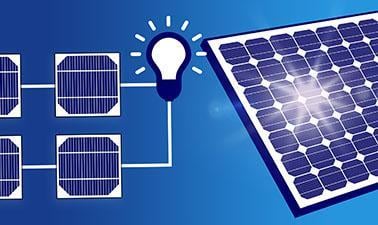MOOC List is learner-supported. When you buy through links on our site, we may earn an affiliate commission.

MOOC List is learner-supported. When you buy through links on our site, we may earn an affiliate commission.
You will gain in-depth knowledge about crystalline silicon based solar cells (90% market share) as well as other up and coming technologies like CdTe, CIGS and Perovskites. This course provides answers to the questions: How are solar cells made from raw materials? Which technologies have the potential to be the major players for different applications in the future?
This course is part of the Solar Energy Engineering MicroMasters Program designed to cover all physics and engineering aspects of photovoltaics: photovoltaic energy conversion, technologies and systems.
What you'll learn
- Design concepts and fabrication processes of various photovoltaic technologies,
- In-depth knowledge on the entire crystalline silicon solar cell landscape including,
. Market-leading polycrystalline based cells
. High efficiency/cutting edge monocrystalline based solar cells
- Application of thin film solar cells, like CIGS, CdTe, thin-film silicon, Perovskites,
- Concentrated PV and space applications for III/V semiconductor based solar cells.
Syllabus
Part 1. Crystalline silicon
Week 1. Introduction & Crystalline Silicon I
1.2 Introduction to Silicon
1.3 Silicon Processing
Week 2. Crystalline Silicon II
2.1 c-Si Solar Cell Design
2.2 Advanced cell design
2.3 From cell to module
Part 2. Solar Cell Characterization
Week 3. Solar cell characterization
3.1 J-V Measurement
3.2 EQE Measurement
3.3 Reflectance - Transmittance Measurement
3.4 Lifetime Measurement
EXAM
Part 3. Thin Film Processing
Week 4. Thin Film Processing
4.1 Thin Film Design
4.2 Thin Film Deposition
Part 4. Thin Film Technologies
Week 5. Thin Film Silicon
5.1 TF Silicon Properties
5.2 Major Challenges
5.3 TF Silicon Processing
5.4 State of the Art TF Silicon Devices
EXAM
Week 6. Chalcogenides & III-V Technologies
6.1 Chalcogenides - CIGS
6.2 Chalcogenides - CdTe
6.3 III-V - Material and Devices
6.4 III-V - Special Applications
Week 7. Organic Photovoltaics
7.1 OPV Basics
7.2 OPV Technologies
7.3 Perovskites
Part 5. Comparing and Combining Technologies
Week 8. Comparing & Combining Technologies
8.1 Comparing PV Technologies
8.2 Hybrid PV Devices
8.3 Hybrid PV Systems
EXAM
Prerequisites:
Bachelor's degree in Science or Engineering and/or the successful completion of Solar Energy: Photovoltaic (PV) Energy Conversion (or firm grasp of its content).
MOOC List is learner-supported. When you buy through links on our site, we may earn an affiliate commission.
MOOC List is learner-supported. When you buy through links on our site, we may earn an affiliate commission.
